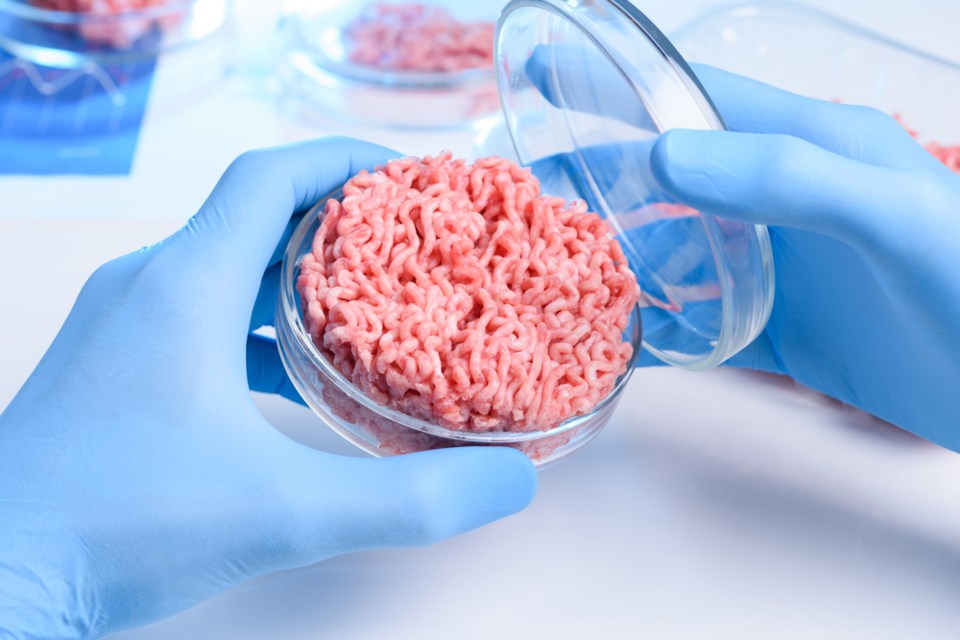Three Canadian projects plan to create laboratory grown meat that competes with range grown beef.
Called cellular agriculture, the process uses cell cultures taken from animals to grow cultured meat. Advocates of lab meat promote the clean lab meat on the basis of a smaller environmental footprint with no need to kill animals.
A group led by Peter Stogios, a senior research associate at the University of Toronto, won a $250,000 grant from Washington-based Good Food Institute to develop lab meat.
His was one of 14 lab meat projects awarded funds for cell-based meat research.
Stogios told the Canadian Press the biggest hurdle for cultured meat is cost of the building block broth. The broth is made up of expensive minerals, vitamins, and amino acids among other matters.
“Can we create those protein molecules, those growth factors better, cheaper and actually make them more potent?” he asked.
His four-member team will consider growth factors from other species, such as birds and fish, trying to mix those with cow cells. That phase should take six months.
If a growth factor or multiple that works well is discovered, the team will start an engineering phase to make it more potent. This phase could take a year and a half.
Vancouver-based biotechnology firm Appleton Meats is working on development of a lab-grown hamburger patty.
University of Alberta educated cell biologist Matt Anderson-Baron works with a team at Future Fields to develop lab-cultured meat.
Last year, Science Trends estimated cost of growing one pound of lab meat was $2,400 US — down from $300,000 US five years ago.
The author estimated a $5 lab-grown hamburger cost would be available by 2020.
Ron Walter can be reached at [email protected]




